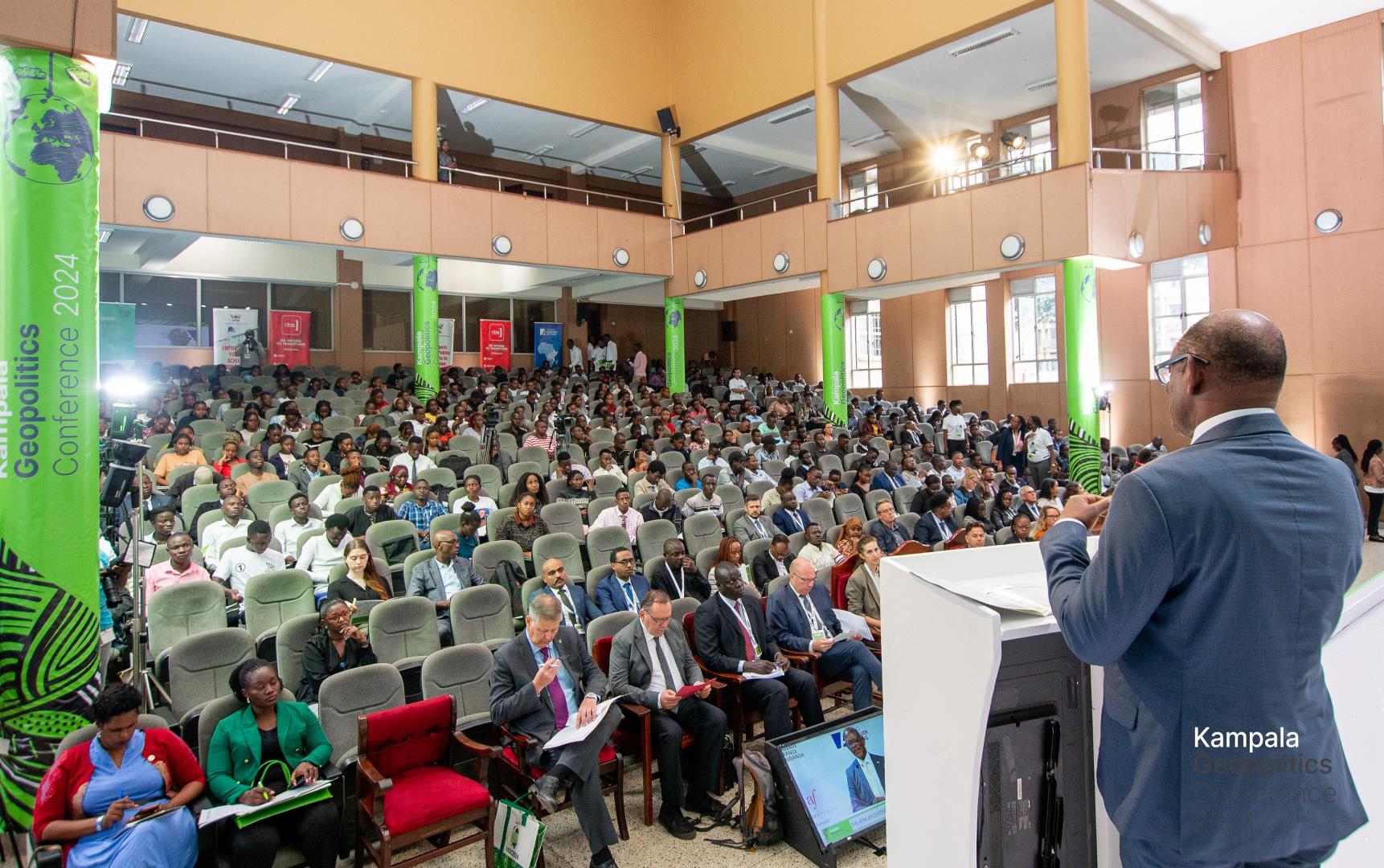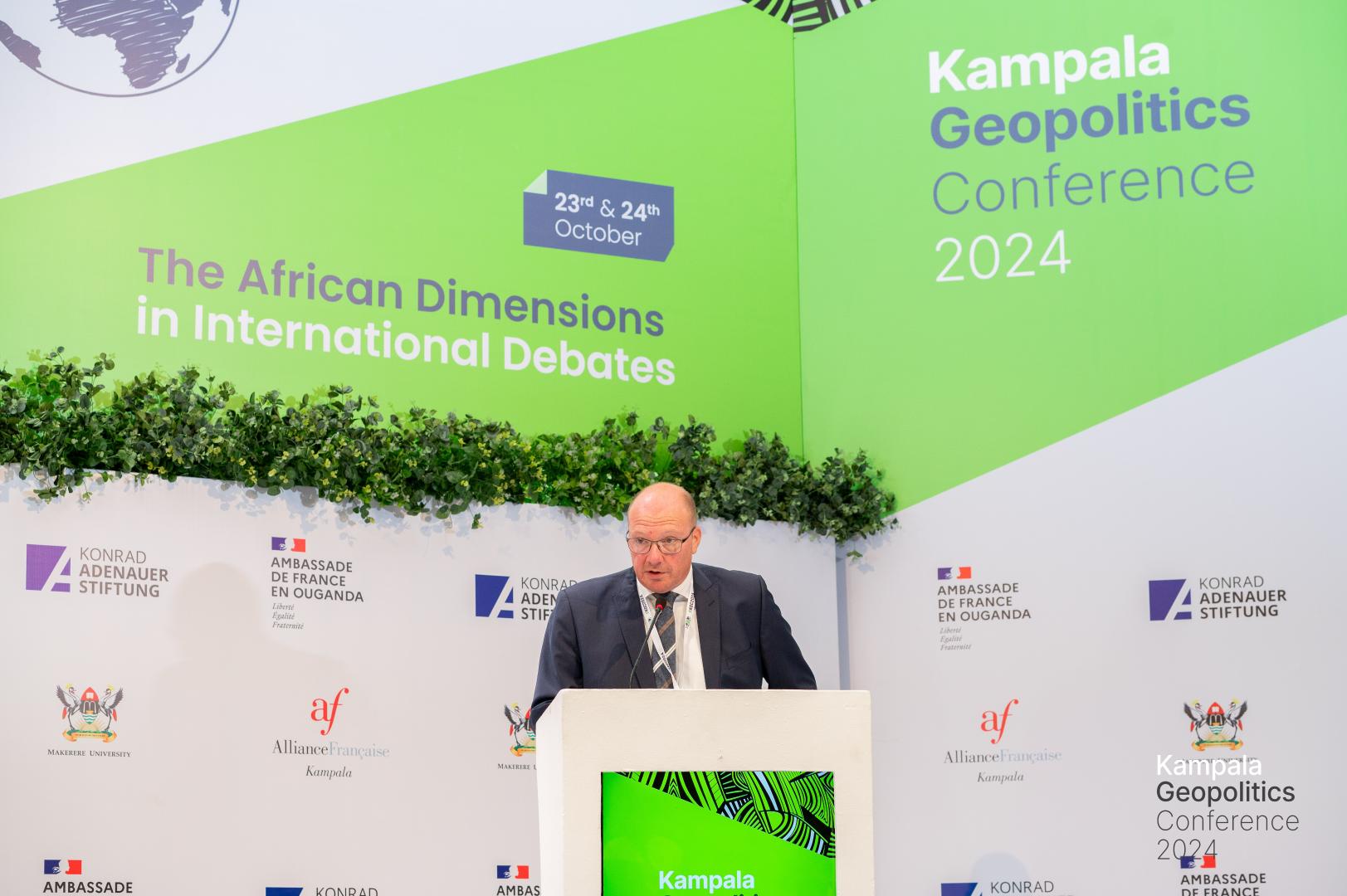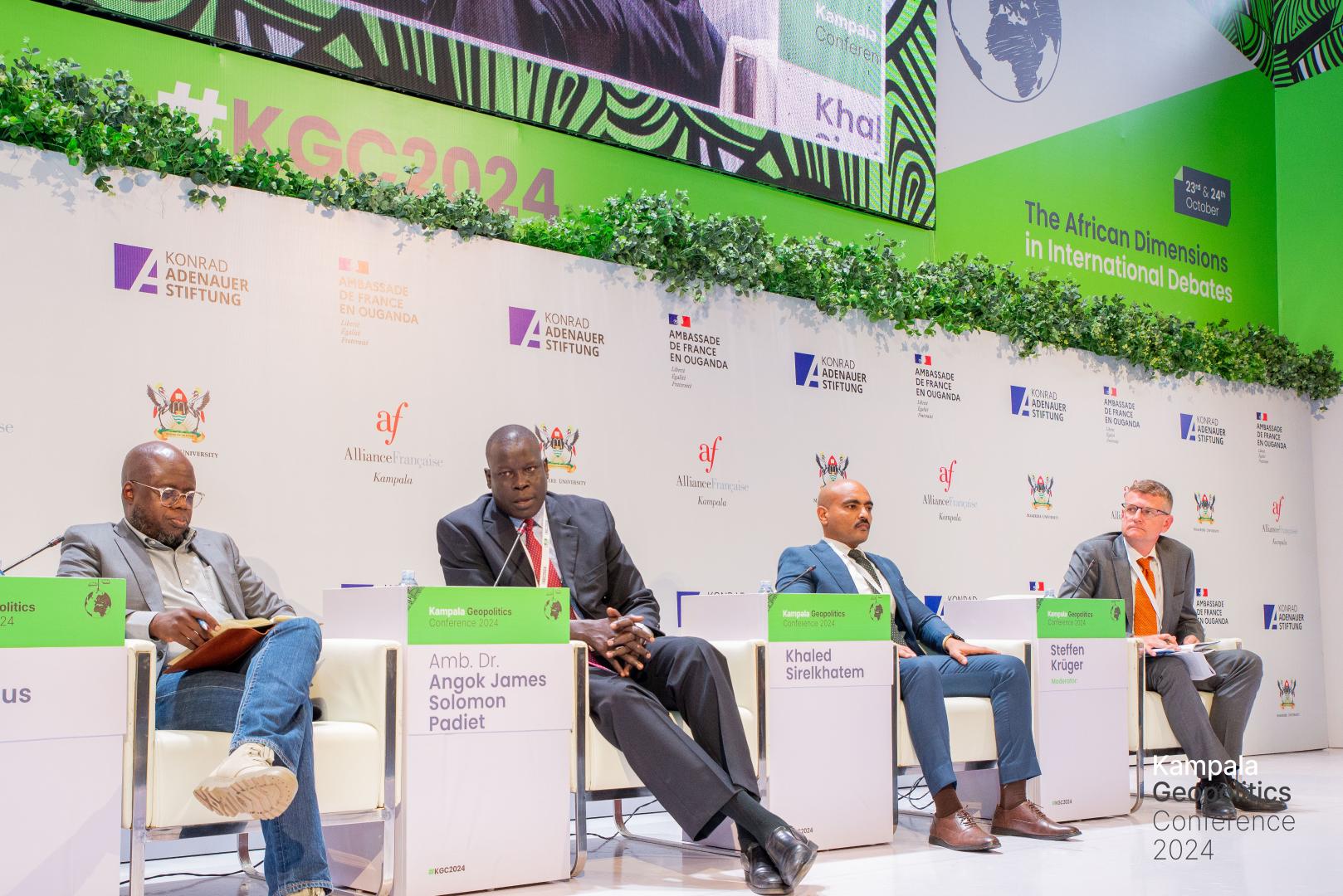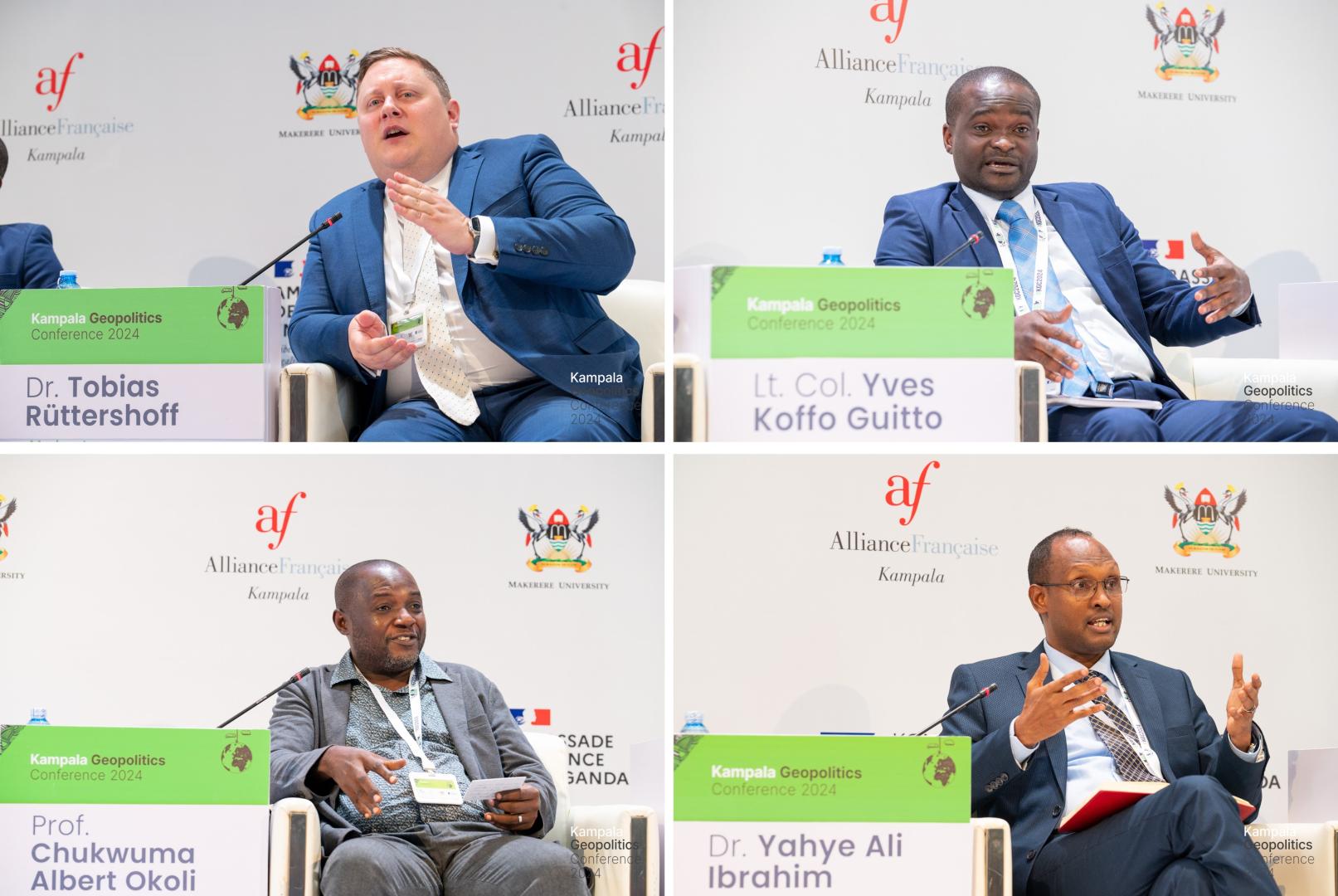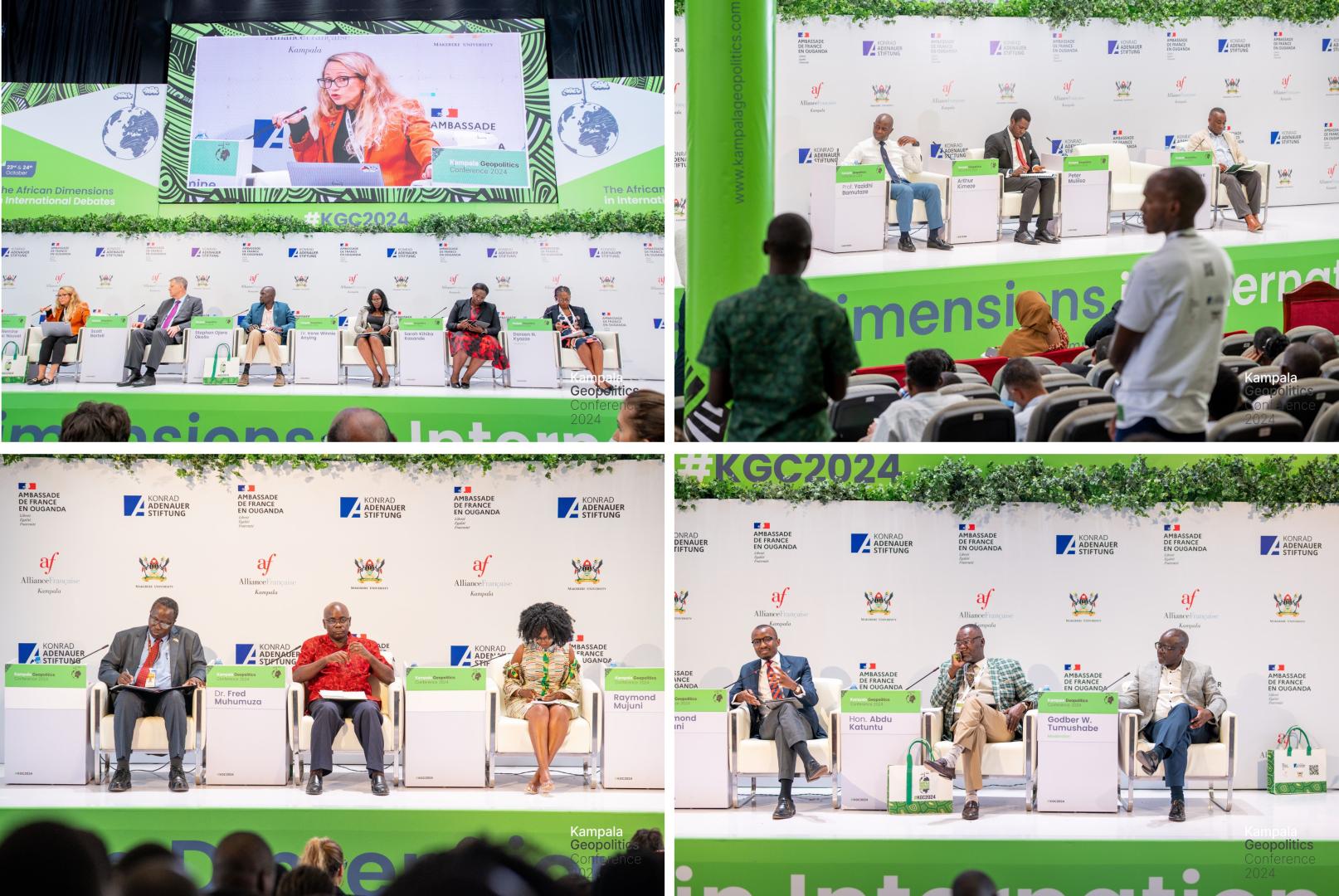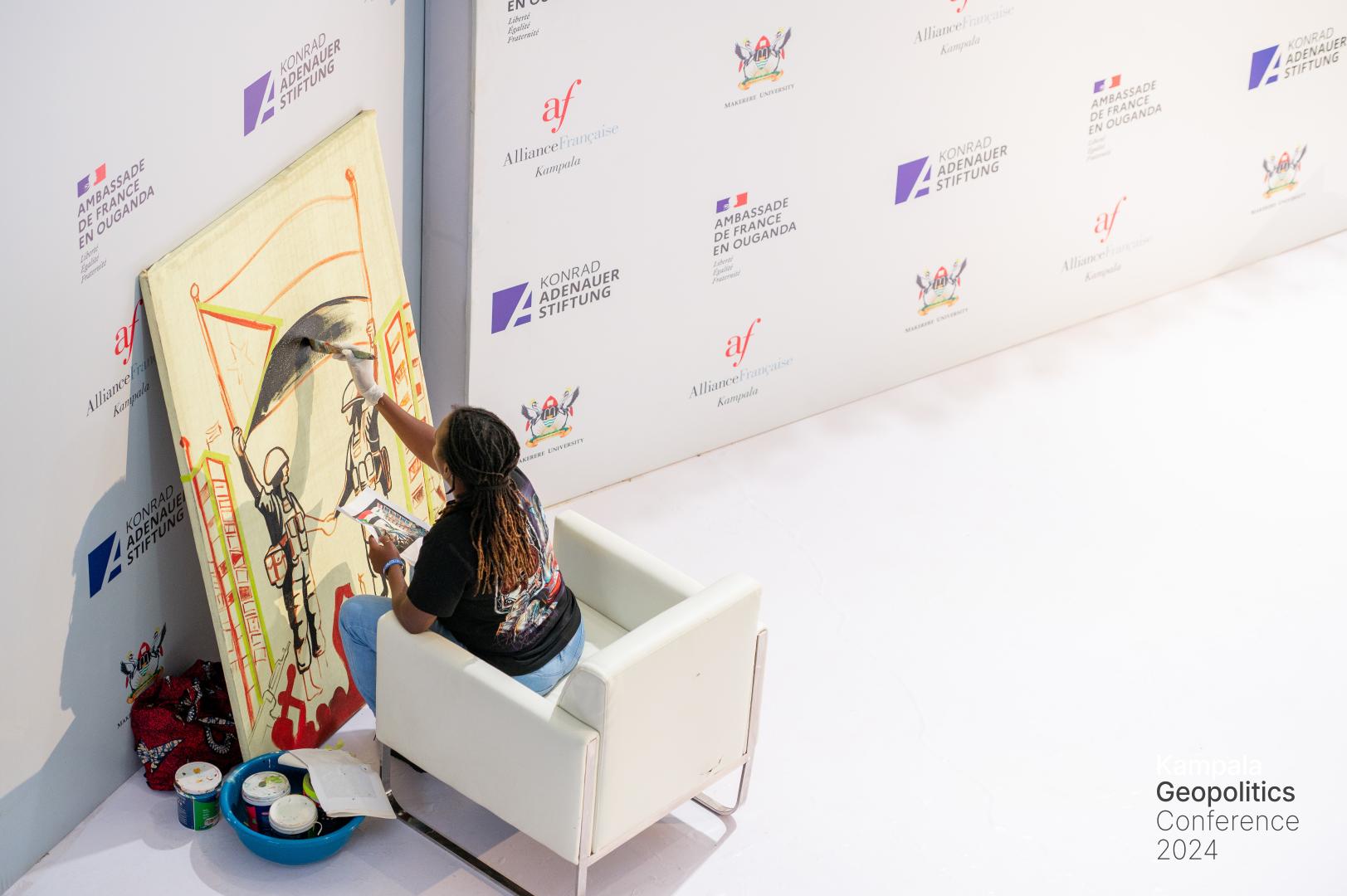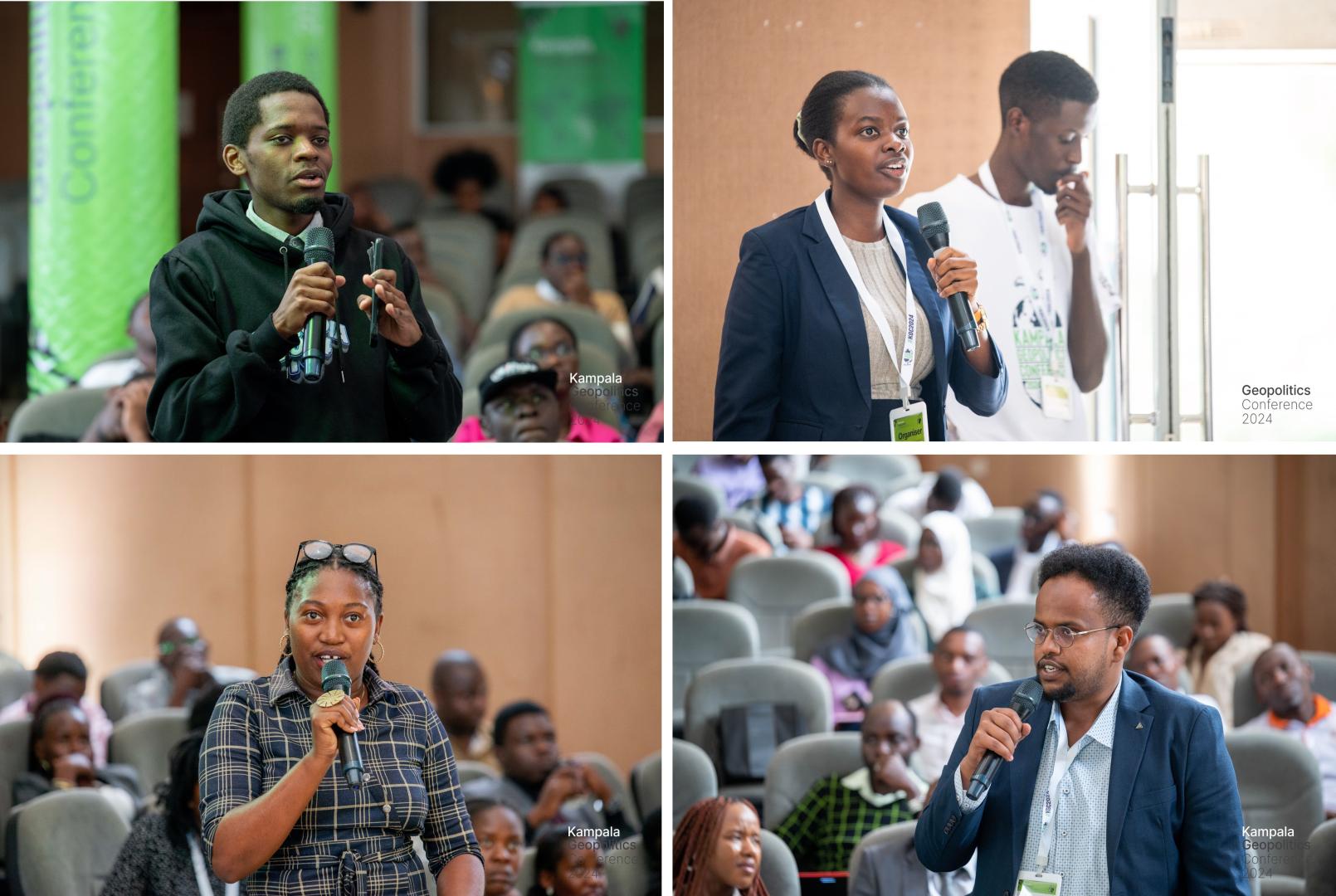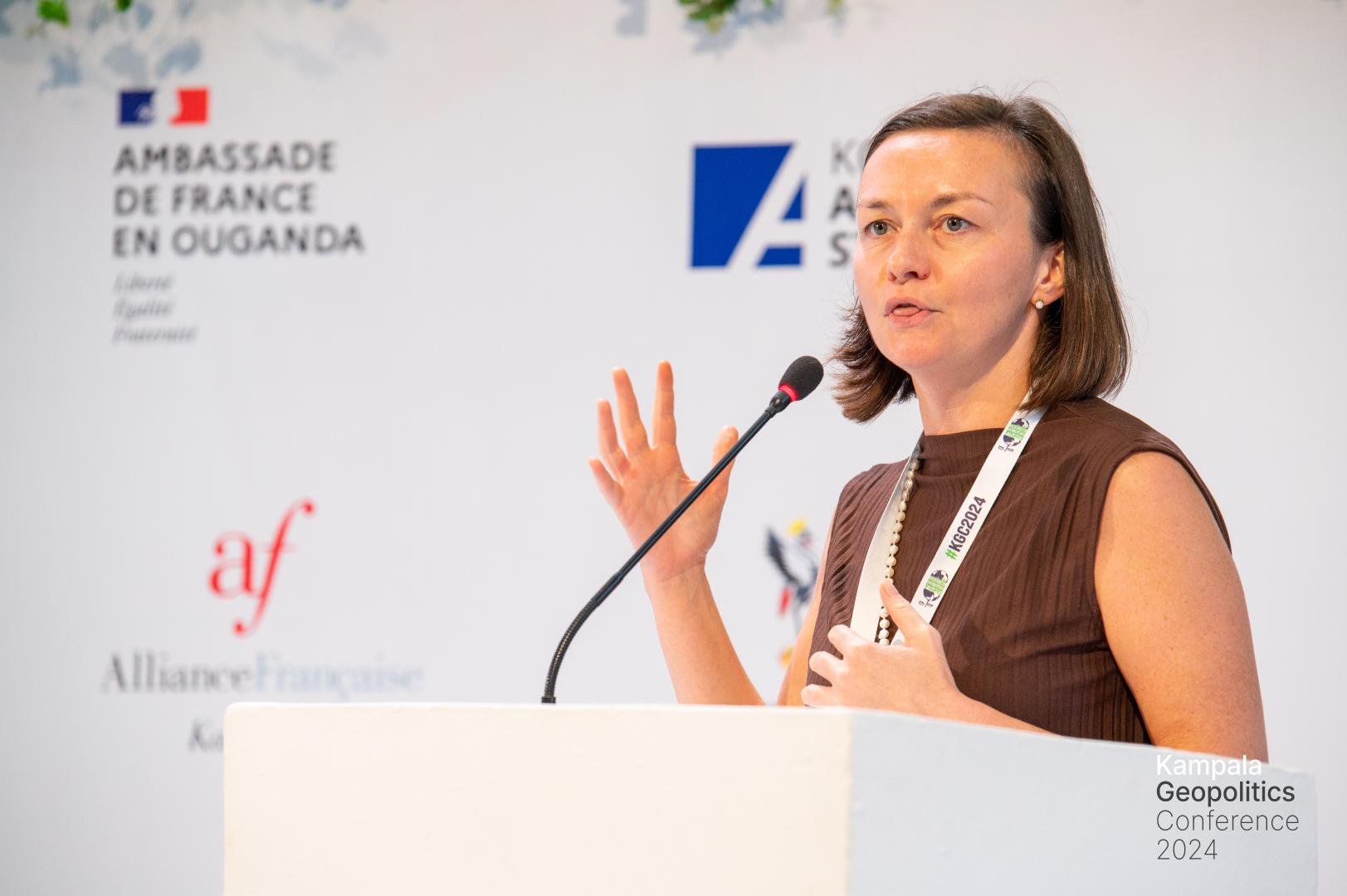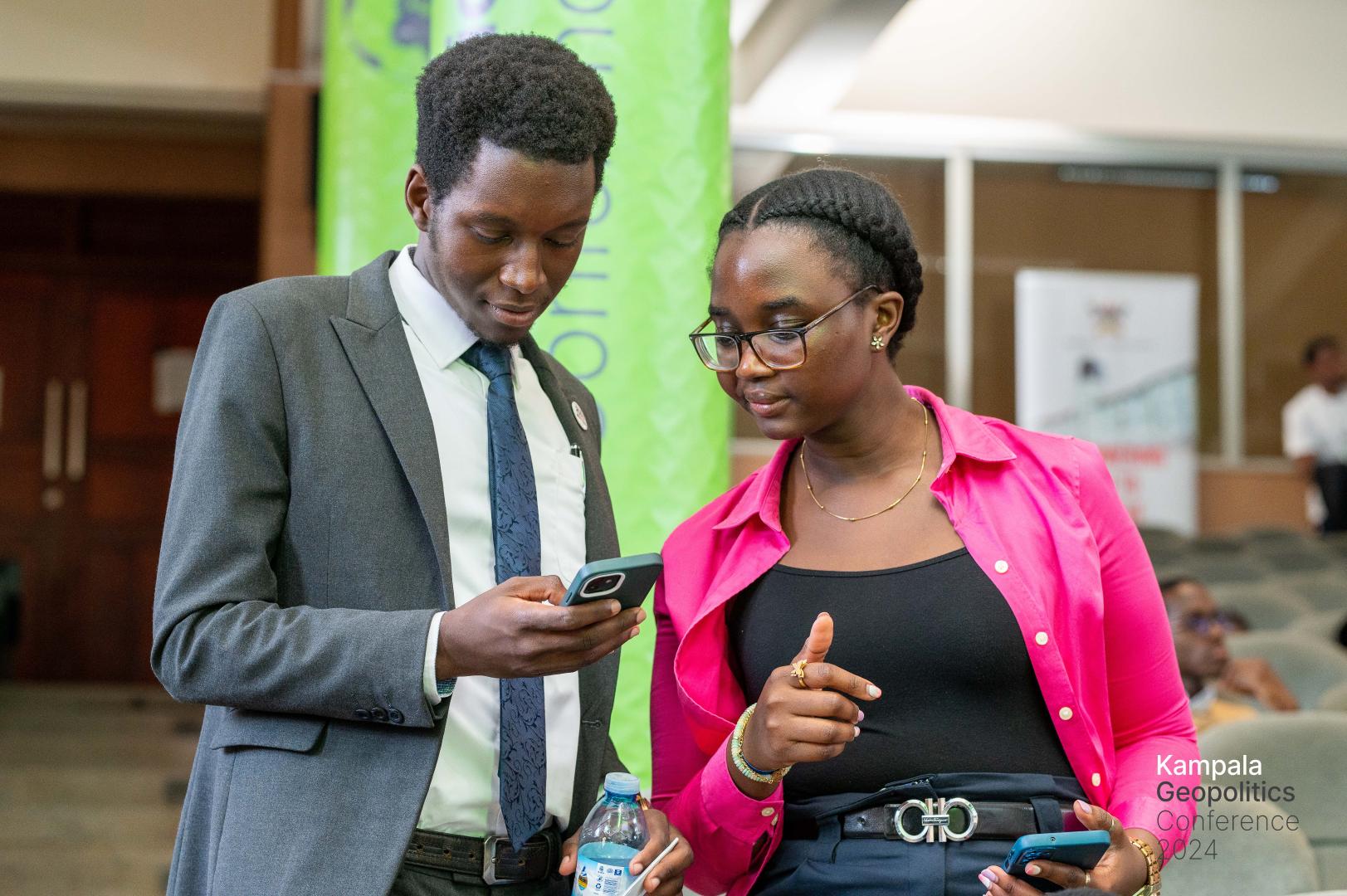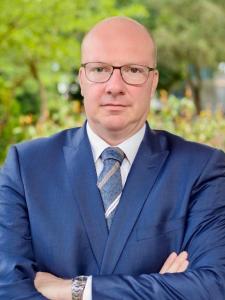The Kampala Geopolitics Conference (KGC) is a flagship event of the work in Uganda, emphasised Janyce Obrecht, First Counsellor of the French Embassy in Uganda. The conference brings together experts, practitioners from politics and administration, journalists, researchers and students to discuss key issues of international relations and security affairs with a special focus on Uganda and the Horn of Africa. Among the topics discussed was the changing demography in African countries, which was highlighted by Prof. Barnabas Nawangwe, Vice Chancellor of Makerere University. In addition, the changing security situation in the Horn of Africa, West Africa and the Middle East, was highlighted by Nils Wörmer, Director of the Regional Programme Security Dialogue for East Africa of KAS, in his opening speech as a main aspect of the conference. Eric Touzé, Director of the Alliance Française de Kampala, also welcomed the participants and thanked them for the good cooperation between the organisations that made the conference possible.
On the first day of the conference, the RP SIPODI East Africa organised a panel discussion on the topic "A Bloody Stalemate? What Lies Ahead for Sudan Amidst a Myriad of Failed Interventions?”. Moderated by Steffen Krüger, Director of the KAS Country Office Egypt, Moses Chrispus Okello, Senior Researcher at the Horn of Africa Security Analysis Programme for Institute for Security Studies (ISS), Ambassador Dr. Angok James Solomon Padiet, Professor of Political Science at the University of Juba, South Sudan, and Khaled Sirelkhatem, Development Studies Expert and Political observer of the Horn of Africa, discussed the background of the conflict in Sudan and analysed the current state of the conflict. They emphasised factors that make a peace solution difficult, including the religious dimensions of the conflict, the fact that both parties to the conflict were part of the previous government and the reason that the military leaders are usually working towards a military victory rather than a negotiated solution. Despite several attempts, no peace negotiations have yet taken place. Nevertheless, there is an urgent need for all parties to work towards a quick solution, as this is one of the most serious displacement and migration crises of recent decades.
The second day of the KGC began with a panel discussion convened by the RP SIPODI East Africa on the topic of "Jihadism, Global Networks, and the African State: The Cases of Somalia, Nigeria and Mali". The discussion was moderated by Dr Tobias Rüttershoff, Director of the KAS RP SIPODI West Africa. The participants were Lieutenant Colonel Yves Koffo Guitto, Head of Operations, Counter-Terrorism Operational Intelligence Center (CROAT) in Côte d'Ivoire, Prof. Chukwuma Albert Okoli, Associate Professor of Political Science at the University of Lafia in Nigeria, and Dr Yahye Ali Ibrahim, Chairman of the Management Institute for National Development (MIND) in Somalia. The experts gave an overview of the historical background and emergence of various terrorist groups in East and West Africa. The discussion focussed on Somalia and the Sahel region. In addition, factors that have led to the spread and establishment of terrorist groups in the respective countries were discussed, including fragile statehood, which has led to local conflicts and power vacuums. It was noted how complex the threat scenario posed by terrorism in Africa has become and how the changing dynamics pose a challenge in combating and understanding it. The significant increase in terrorist activities in West Africa from 2021 onwards was attributed, among other things, to the military coups in the Sahel region in recent years and the subsequent withdrawal of Western security forces, which in turn led to a significant deterioration in the security situation in these regions. For this reason, cross-border cooperation between different countries in the fight against terrorism is even more important than before. A key aspect of this is the sharing of intelligence to ensure an effective fight against and prevention of the further spread of Islamist terrorism towards the Gulf of Guinea.
The other partners arranged panel discussions on various topics, including the link between war crimes, gender-based violence and justice, the balance between global climate commitments and Africa's development needs, the impact of oil on Uganda's future and Africa's partnerships with emerging and traditional powers in transition. Alliance Française de Kampala organised a reception and cultural performance on the evening of the first day to further exchange on the discussions of the conference. At the end of the KGC, Cyril Maman, Director of the Cooperation and Cultural Affairs Department of the French Embassy in Uganda, Anna Reismann, Director of the KAS Country Office Uganda and South Sudan and Awel Uwihanganye, Chief Advancement Officer of Makerere University, delivered their closing remarks.
Afterwards, the RP SIPODI East Africa hosted a closed panel discussion event on “The Future United States’ Policy towards Africa. Continuity, Reversal, or New Directions” for its partners from Uganda, as well as guests from the Horn of Africa and West Africa.
About this series
The Konrad-Adenauer-Stiftung, its educational institutions, centres and foreign offices, offer several thousand events on various subjects each year. We provide up to date and exclusive reports on selected conferences, events and symposia at www.kas.de. In addition to a summary of the contents, you can also find additional material such as pictures, speeches, videos or audio clips.



